Never Take Medication on a Plane Without Doing This First, Experts Warn
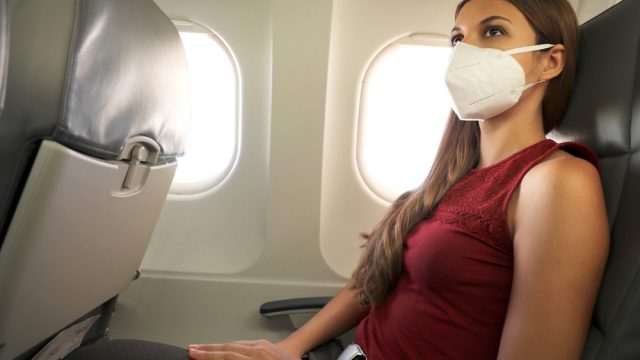
Staying on top of the pills you need to take can become extra complicated when you’re on the go. But whether you’re taking a daily prescription or just need something to combat general aches and pains, experts warn that it’s important you always do one thing before taking medication on a plane. Read on to see what should always come first for your health’s sake.
RELATED: Never Do This When Eating on a Plane, Flight Attendants Warn.
You should never take medication on a plane without trying it at home first.
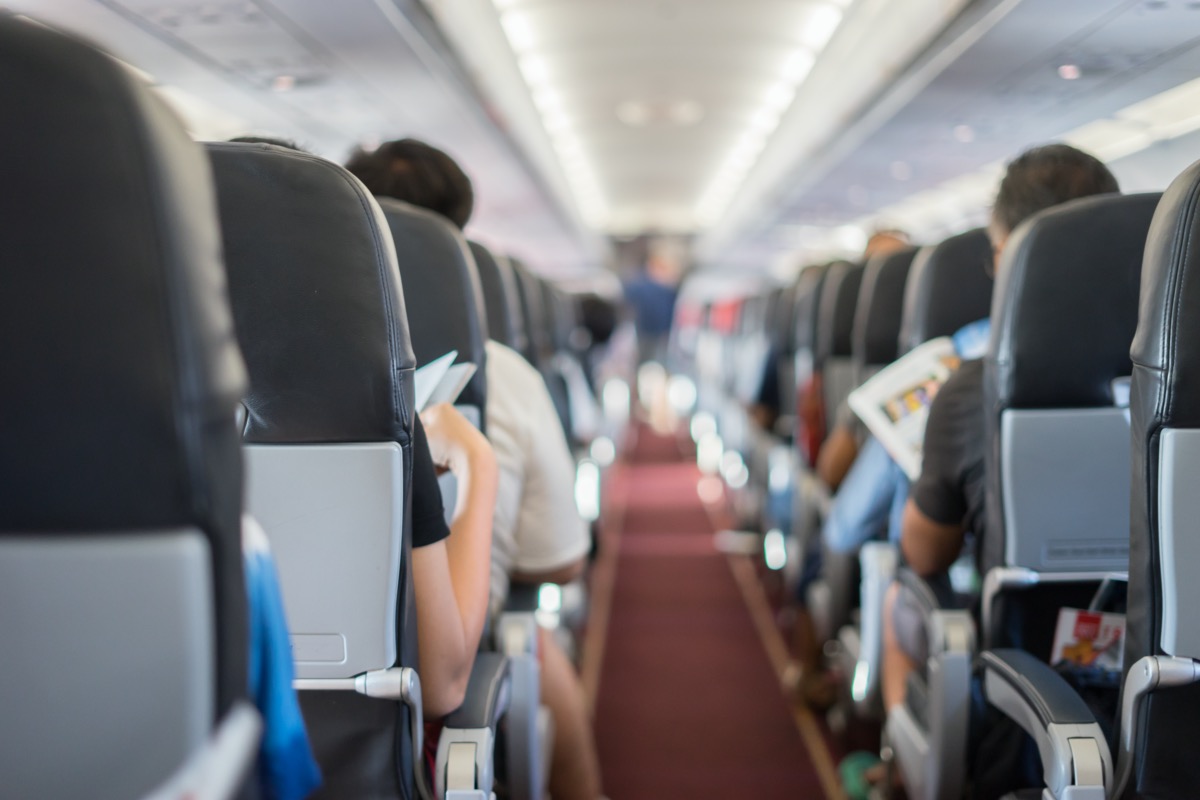
Maybe you’re anxious about taking your first flight in a while. Perhaps you want to make sure you get plenty of sleep on your overnight long haul. Or you could even just be trying out a new set of supplements you picked up while visiting your friend from out of town. Whatever the case may be, experts warn that you should never take any medication for the first time while you’re on a plane.
You may have an adverse reaction to a new type of medicine that can be difficult to handle mid-flight.
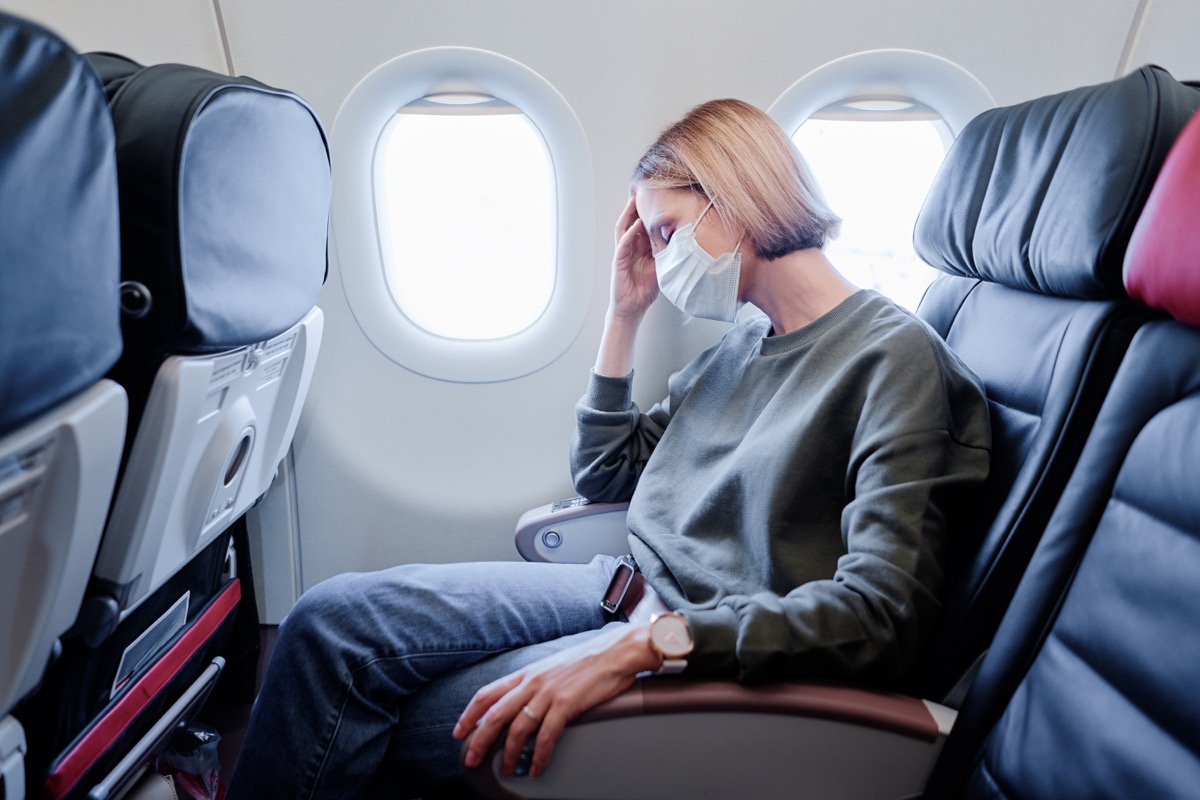
While it may not cross your mind before you go to board, it’s important to be aware of how any kind of new pill will affect your physical and mental well-being before you take off. Experts warn that the strength of certain pills could cause adverse reactions, ranging from sleeping-pill-induced sleepwalking to potential allergic reactions to certain medications—or even bad interactions between different medicines.
If you’re a nervous flyer looking to calm your nerves, you may want to be extra careful before you try any unvetted pills while in flight. “People with genetic anxiety (which is most of us) are generally very sensitive,” Polly Meyers, MD, an author and co-founder of Break Free from Anxiety, told Insider. “[Because of] this genetic variation, we can overreact or have a bad response to medications.”
For more travel and health tips sent right to your inbox, sign up for our daily newsletter.
Studies have found that some pills can become more potent at higher altitudes.
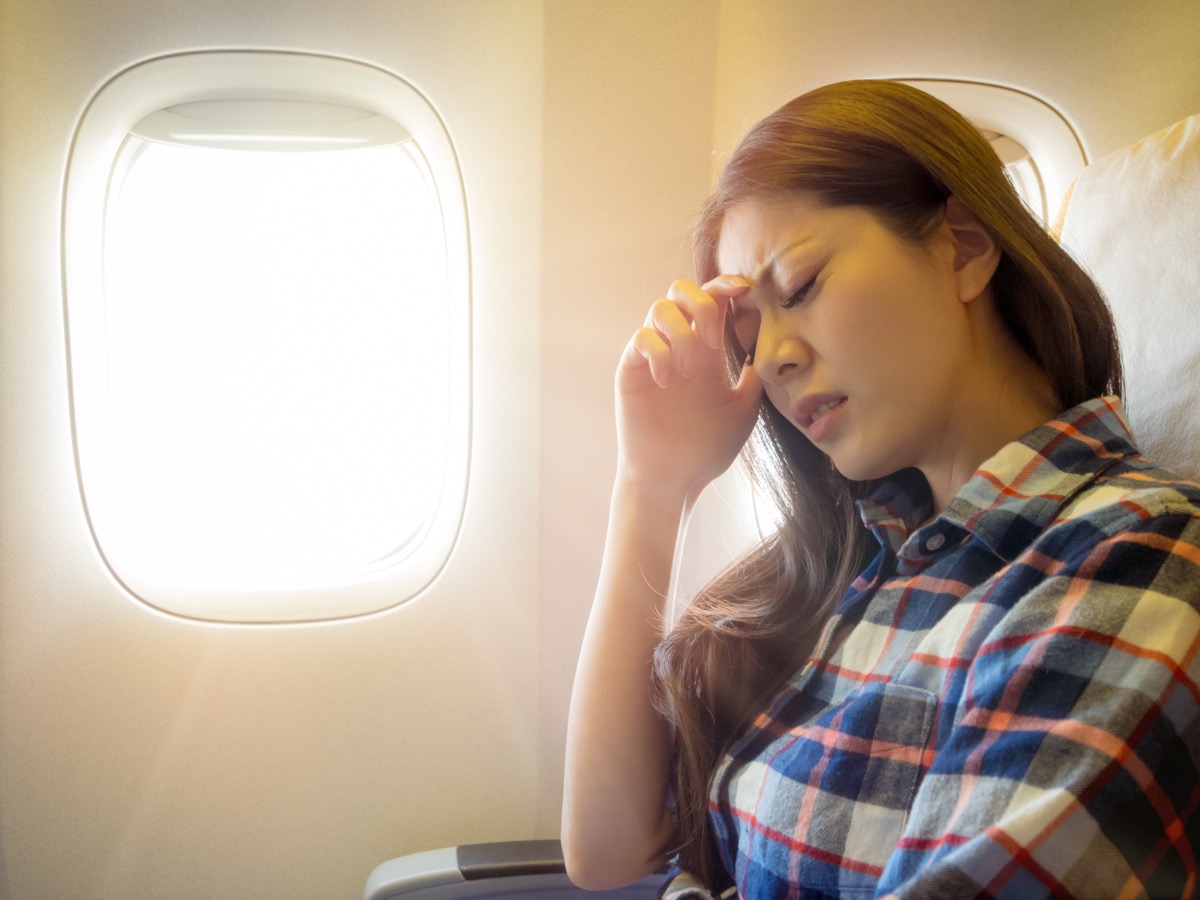
Even if you’re planning ahead by selecting a certain dosage of a new medication before your flight, you may be in for a surprise. A report from the University of Cincinnati found that changes in your body—specifically, a spike in red blood cells and a reduction in plasma proteins—could change the potency of certain medications at high altitudes, Insider reports. This is somewhat similar to how alcohol can have a greater effect during a flight than on the ground.
Certain medications could also increase the likelihood of a medical emergency on a flight. The combination of decreased oxygen onboard, long bouts of sitting or inactivity in your seat, and dehydration caused by the dry conditions on a plane already make a blood clotting issue known as deep vascular thrombosis (DVT) a potential issue on any long haul flight. But anyone taking hormone-based treatments such as contraceptives or hormone replacement therapy could be at an elevated risk of a clotting incident, especially if they have a history of heart attack or stroke, The Conversation reports.
Talk to your doctor about any medications you’re thinking about taking to get through your flight.
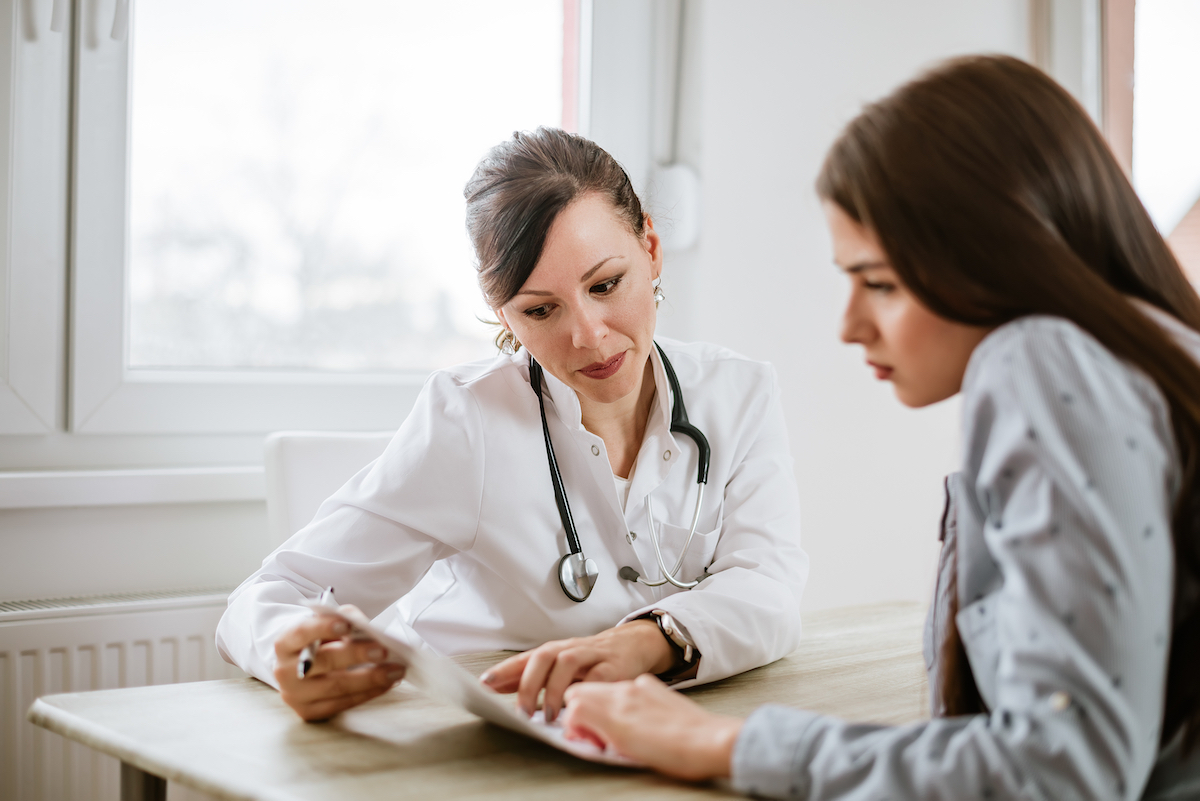
Experts recommend talking with your doctor about any pills you’re planning on taking for your next flight. Even if you’re only interested in over-the-counter options, your doctor may be able to help you find the right dosage or avoid any potential interactions with other medications you may be taking.
Otherwise, it’s recommended that you stick to alcohol only in moderation during your flight and avoid mixing any hard drinks with your medications. You should also be sure to stay plenty hydrated and try to get up and move around every once in a while on long flights if your doctor has spoken to you about being at high risk for any blood clotting issues.
And if you’re still trying to get over flying jitters, it may be best to speak to your doctor about the best option before deciding for yourself how to handle it. “It’s important to have a good primary care physician who is willing to prescribe an anti-anxiety medication just prior to travel, which might be helpful for those with true anxiety disorders,” Tania Elliott, MD, tells Healthline. “Find a provider who is willing to listen to where the anxiety is coming from and diagnose appropriately.”
RELATED: If You’re Offered This on a Plane, Just Say No, Flight Attendants Warn.